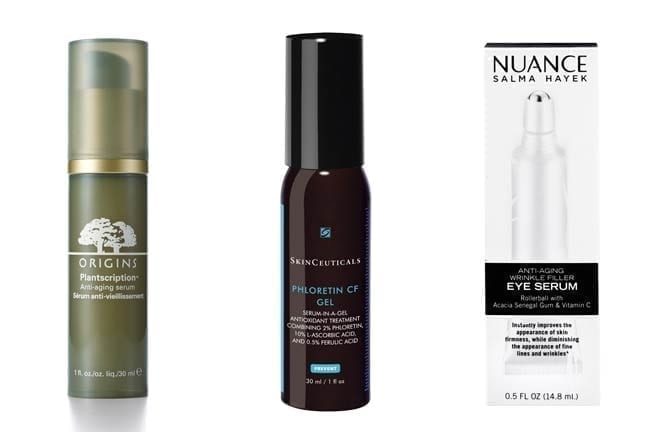Throw a rock in a drugstore or at a department store beauty counter (okay, we don’t actually recommend doing that) and chances are, you’ll hit a serum. It’s become the most ubiquitous and intriguing skincare product—and for good reason.The hyper-concentrated potions seem to pack a serious punch when it comes to immediate results. And ever since Estee Lauder launched their bestselling Advanced Night Repair in 1982, which they claim was the first serum to market (though it wasn’t called a serum at the time), the category has majorly blown up.
But plenty of beauty junkies are still in the dark when it comes to what’s up with them. What’s the difference between a serum and a cream? Why are they so expensive? And most importantly, do you even need one? Here are some reasons why you might want to consider making serums a weapon in your skincare arsenal.
QUIZ: What’s Your Biggest Skin Challenge?
You have a serious skin challenge.
Cosmetic chemists and derms maintain that serums tend to be more efficacious than plain old-school moisturizers due to the method of delivery: Serums are more concentrated so they’re able to penetrate more deeply than creams, according to Ni’Kita Wilson, YouBeauty Cosmetic Chemistry Expert. That makes these products ideal for troubleshooting specific problems such as redness, acne and hyperpigmentation. For example, rosacea sufferers might try a serum that contains azulene, which can help calm irritated skin.
You have ultra oily skin.
Oily skin types tend to avoid rich, heavy oil-based creams like the plague since they can clog pores and bring on breakouts. But skimping on a moisturizer means losing out on potential anti-aging benefits. What’s more, drying out your skin can actually result in increased oil production. Luckily, most serums are water-based and lightweight enough to slather on sans an oily aftermath. Bonus: Formulas that contain vitamin C or luminizers tend to impart a gorgeous glow, leaving skin looking hydrated and healthy—not sweaty. Top off with an oil-free, gel-based sunscreen.
You have super dry days.
Wintertime is notorious for causing your skin to turn dry and flaky—and even the creamiest, richest moisturizer isn’t always enough. Many serums are formulated to act as boosters to heavier creams by providing a crucial layer of vitamins and essential oils that the cream effectively “seals” into skin. Think of a serum as a strong foundation and cream as a protective barrier. Look for serums that contain super-hydrating ingredients like hyaluronic acid.
MORE: The Best Care for Your Skin Type
The Best New Serums to TryThe Natural: Origins Plantscription Anti-Aging Serum, $56
The people at Origins schlepped to Ghana in order to get their hands on anogeissus, a native plant treasured for its antimicrobial and wound-healing properties. Applied to this potion, they claim it rivals prescription anti-agers in its ability to increase fibrillin, a glycoprotein that helps maintain the skin’s elasticity and makes it look bouncy and taut.
The Techie: SkinCeuticals Phloretin CF Gel, $96
This antioxidant-rich triple threat has derms swooning: The “serum-in-a-gel” contains 2 percent phloretin, 10 percent vitamin C, and 0.5 percent ferulic acid, a combination that the company claims both prevents new and repairs existing sun damage. We like that the gel consistency means it can easily be used by all skin types, even those prone to breakouts.
The Movie Star: Nuance by Salma Hayek Anti-Aging Wrinkle Filler Eye Serum, $28
We usually take celebrity-endorsed lines with a grain of salt, but it’s clear that Salma Hayek put plenty of thoughtful research into her accessible new Nuance products. Her celeb serum contains acacia senegal gum, which is a nutrient-rich tree sap, and vitamin C, delivered via a cooling rollerball that aims to instantly smooth and “lift” skin around the eyes.




































